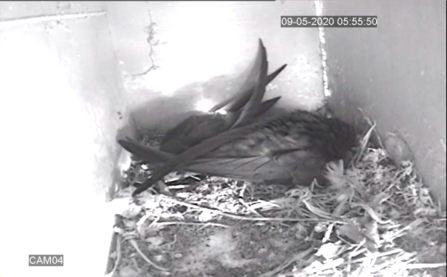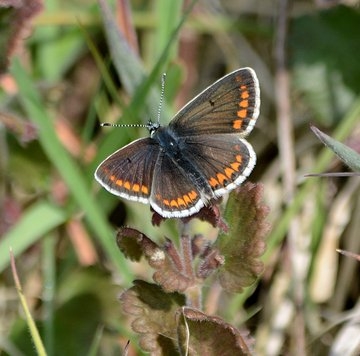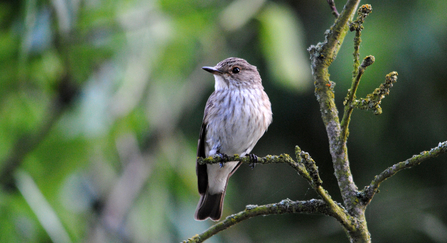By Hawk Honey
Already spotted over the last week or so are damselflies. These delicate insects with gossamer wings are quite an easy catch for many a nesting bird and as they emerge in large numbers, starting with the large red damselfly, they provide a sustainable diet for the early nesters such as robins and whitethroats, as well as the later arrivals such as the hirundines - the swallows and martins. These swoop low over the lakes catching a whole variety of insects. Hobby are also being seen and they will prey on the larger insects such as dragonflies and the odd larger butterfly. Our swifts from last year have returned back to their nest box and are settling in well. Spotted flycatchers, too, have returned to Lackford Lakes and we hope they too will be nesting here.




